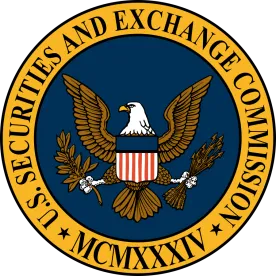On March 4, 2020, the Securities and Exchange Commission (SEC) announced its proposal to harmonize, simplify, and improve the exempt offering framework under the Securities Act of 1933 (the “Securities Act”).1 The SEC’s proposals are the result of the responses submitted to the SEC in connection with the concept release issued June 18, 2019, soliciting public comment on possible ways to harmonize and improve the securities offering framework (the “Concept Release”). The proposed amendments, among other things, address the ability of issuers to move from one exemption to another, increase the offering limits for Regulation A, Regulation Crowdfunding, and Rule 504 offerings, provide consistent rules governing offering communications between investors and issuers, and harmonize disclosure and eligibility requirements. The public will have until May 3, 2020 to comment on the proposed amendments.
Offerings of securities must be either registered with the SEC or qualify for an offering exemption or safe harbor. The current legal framework for exempt offerings is complex and establishes different requirements for each type of offering, which may be confusing for potential issuers. The most commonly used exemptions are as follows2:
- Section 4(a)(2) of the Securities Act,
- Rule 506 of Regulation D,
- Rule 504 of Regulation D,
- Regulation Crowdfunding,
- Regulation A,
- Section 3(a) (11) of the Securities Act,
- Rule 147, and
- Rule 147A.
Offering and Investment Limits. Based on the comments received in connection with the Concept Release, the SEC proposed to revise the current offering and investment limits as follows:
Regulation Crowdfunding3: (i) raise the offering limit from $1.07 million to $5 million, and (ii) modify the investment limit (a) to accredited investors by not applying investment limits, and (b) to non-accredited investors by revising the calculation for investment limits allowing them to rely on the greater of their annual income or net worth.
Regulation A (Tier 2)4: (i) raise the maximum offering amount from $50 million to $75 million, and (ii) raise the maximum offering amount for secondary sales from $15 million to $22.5 million.
Rule 504 of Regulation D5: raise the maximum offering amount from $5 million to $10 million.
Integration of Safe Harbors. The SEC has proposed simplified tests for determining whether two separate offerings should be integrated, and provided proposed general integration guidance.
|
Integration Principle6 |
|
|
General Principle |
For all offerings not covered by a safe harbor, offers and sales would not be integrated if, based on the particular facts and circumstances, the issuer can establish that each offering either complies with the registration requirements of the Securities Act, or that an exemption from registration is available for the particular offering. |
|
Application of the General Principle to exempt offerings where general solicitation is not permitted |
The issuer must have a reasonable belief, based on the facts and circumstances, that: (1) the purchasers in each exempt offering were not solicited through the use of general solicitation; or (2) the purchasers in each exempt offering established a substantive relationship with the issuer (or person acting on the issuer’s behalf) prior to the commencement of the offering not permitting general solicitation. |
|
Application of the General Principle to concurrent exempt offerings that each allow general solicitation |
If an exempt offering permitting general solicitation includes information about the material terms of a concurrent offering under another exemption also permitting general solicitation, the offering materials must include the necessary legends for, and otherwise comply with, the requirements of each exemption. |
|
Non-Exclusive Integration Safe Harbors7 |
|
|
Safe Harbor 1 |
Any offering made more than 30 calendar days before the commencement of any other offering, or more than 30 calendar days after the termination or completion of any other offering, would not be integrated; provided that, for an exempt offering for which general solicitation is not permitted, the purchasers either were not solicited through the use of general solicitation, or established a substantive relationship with the issuer prior to the commencement of the offering for which general solicitation is not permitted. |
|
Safe Harbor 2 |
Offers and sales made in compliance with Rule 701, pursuant to an employee benefit plan, or in compliance with Regulation S would not be integrated with other offerings. |
|
Safe Harbor 3 |
An offering for which a Securities Act registration statement has been filed would not be integrated if made subsequent to: (i) a terminated or completed offering for which general solicitation is not permitted; (ii) a terminated or completed offering for which general solicitation is permitted and made only to qualified institutional buyers (QIBs) and institutional accredited investors (IAIs); or (iii) an offering for which general solicitation is permitted that terminated or completed more than 30 calendar days prior to the commencement of the registered offering. |
|
Safe Harbor 4 |
Offers and sales made in reliance on an exemption for which general solicitation is permitted would not be integrated if made subsequent to any prior terminated or completed offering. |
Communications between Issuers and Potential Investors. The SEC is proposing two new rules that would permit (i) certain “demo day” communications that would not be deemed general solicitation or general advertising, and (ii) issuers to “test-the-waters” by using generic solicitation of interest materials before determining which exemption it should use.
Under Rule 506(b), general solicitation is prohibited. Although the concept “general solicitation” has been broadly defined by the SEC, commenters to the Concept Release have raised questions about issuers that present to potential investors at “demo days” and similar events. As a result, the SEC is proposing to adopt new Rule 148, which would establish that certain “demo day” communications would not be deemed general solicitation or general advertising, if the communications are made in connection with a seminar or meeting by a college, university, or other institution of higher education, a local government, a nonprofit organization, or an angel investor group, incubator, or accelerator sponsoring the seminar or meeting.
The SEC is proposing to adopt a new Rule 241 to permit, under certain conditions, general solicitations of interest before an exemption has been decided upon, and to amend Regulation Crowdfunding to permit issuers to solicit indications of interest and amendments to Regulation Crowdfunding’s and Regulation A’s testing-the-waters provisions to reflect the possibility that issuers may choose to test the waters by using the new Rule 241 generic solicitation of interest before determining whether to conduct their offering under Regulation Crowdfunding or Regulation A.
Regulation A and Regulation Crowdfunding Eligibility. The SEC is harmonizing its exempt offering framework by limiting the types of securities that may be offered under Regulation Crowdfunding to the same types of securities that may be offered under Regulation A. In addition, the SEC is permitting a new limited purpose vehicle, which would be exempt from registration under the Investment Company Act of 1940, as amended, under new proposed Rule 3a-9, for the purposes of functioning solely as a conduit to invest in businesses raising capital through Regulation Crowdfunding.
1See Release Nos. 33-10763; 34-88321; File No. S7-05-20
2 17 CFR § 227, § 229, § 230, § 239, § 249, § 270, and § 274.
3 17 CFR § 227.100.
4 17 CFR § 230.251.
5 17 CFR § 230.504.
6 Table from pages 28-29 of the Release Nos. 33-10763; 34-88321; File No. S7-05-20
7 Table from page 29 of the Release Nos. 33-10763; 34-88321; File No. S7-05-20




 />i
/>i

